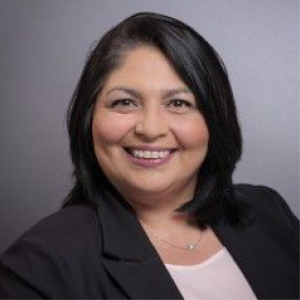 AUSTIN — CommUnityCare Health Centers has chosen Yvonne Camarena to serve as its inaugural Chief Nursing Officer (CNO). The creation of the role is in recognition of the non-profit organization’s sizable growth as the largest community health system in Central Texas. Last year CommUnityCare served more than 125,000 patients with more than 400,000 plus dental and medical visits provided.
AUSTIN — CommUnityCare Health Centers has chosen Yvonne Camarena to serve as its inaugural Chief Nursing Officer (CNO). The creation of the role is in recognition of the non-profit organization’s sizable growth as the largest community health system in Central Texas. Last year CommUnityCare served more than 125,000 patients with more than 400,000 plus dental and medical visits provided.
Camarena has served as CommUnityCare’s Chief Operating Officer (COO) since 2018 and as its director of nursing prior to taking that role. As COO, Camarena shepherded multiple clinic expansions and openings and is currently supporting the development of four new clinics that are expected to open in 2023.
The new CNO role will allow CommUnityCare to better focus on its care management and enabling services, as well as strengthen its pipeline of nurses and medical assistants. As CNO, Camarena will also support the further development of CommUnityCare’s expanded patient-centered care model.
“Camarena is a solutions-focused nurse administrator with a comprehensive background in clinical, administrative, and quality fields,” said Chief Executive Officer Jaeson Fournier. “She is a tireless and dedicated leader and as CNO she will be directly involved with CommUnityCare’s evolution toward greater systems. Most importantly, she is a staunch patient advocate that strives to ensure our patients receive the care they need and deserve regardless of their income level or insurance status.”
Camarena’s commitment to serving Central Texas is long, including health care roles with the City of Austin, Austin Regional Clinic, Central Health and CommUnityCare spanning nearly three decades. She was also chief operating officer of Tiburcio Vasquez Health Center in Northern California from 2013 to 2016.
Camarena graduated from The University of Texas Rio Grande Valley (formally Pan American University) with an associate degree in nursing. She continued her education with a Bachelor of Science in Nursing from The University of Texas at Austin, followed by a master’s degree in health care administration from Purdue University Global University.
She began her health care career as a nurse’s aide in an acute care hospital. Having begun with bedside care, she understands the importance of patient care at all service levels. She is passionate for the need to create a caring environment for patients and developing positive employee engagement.
“I’m looking forward to this opportunity to engage even more deeply in developing our care teams to best serve our patients’ needs,” Camarena said. “The key to expanding patient access is having well-trained teams, who can provide culturally sensitive and high-quality care that meets the needs of some of our most vulnerable populations.”








